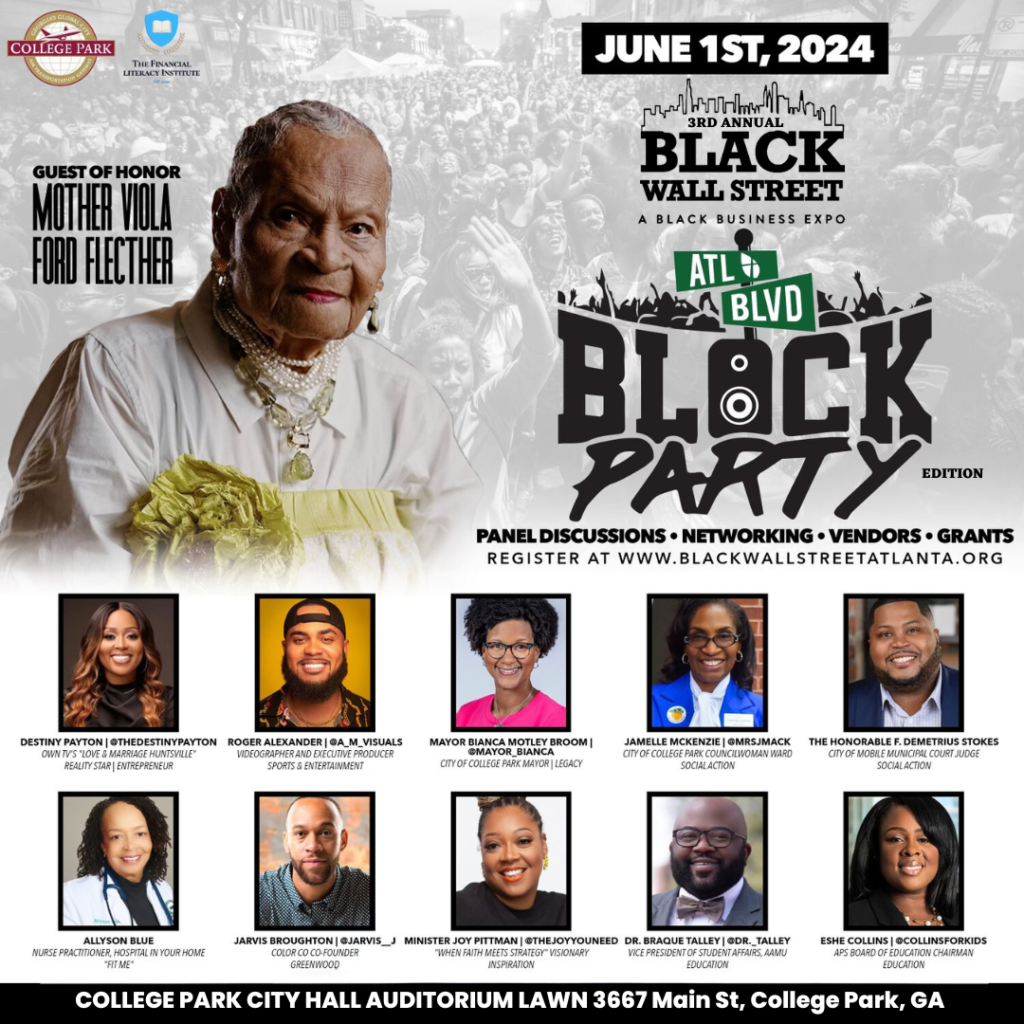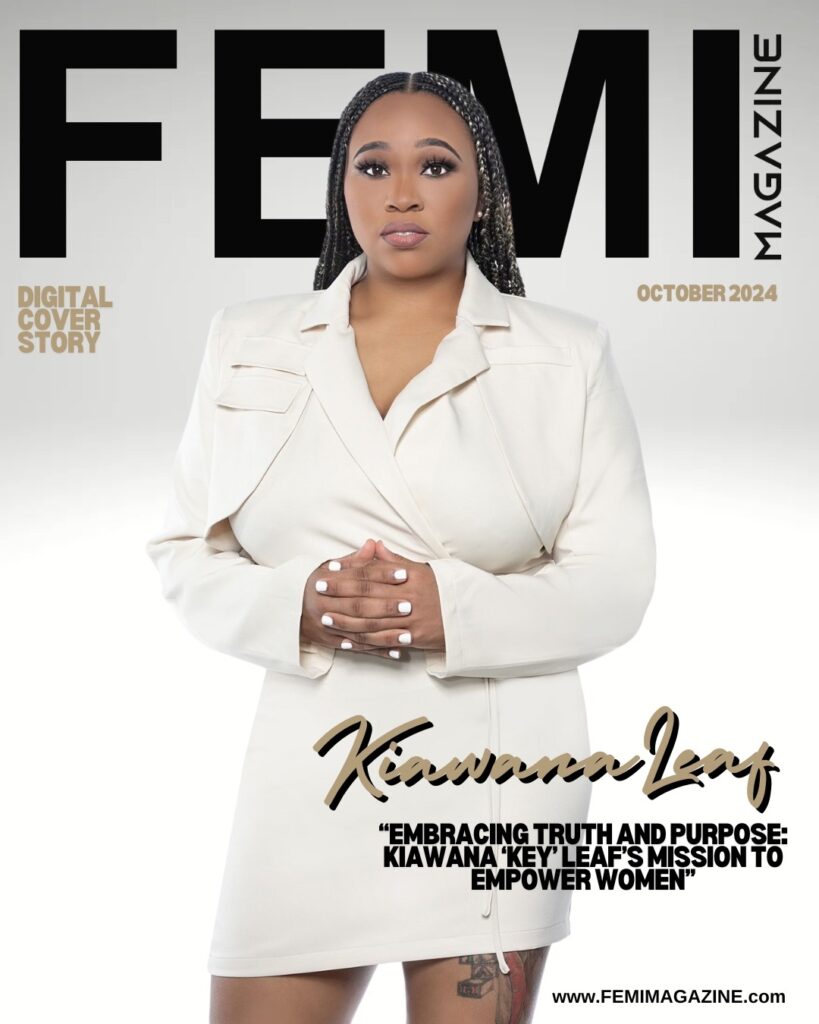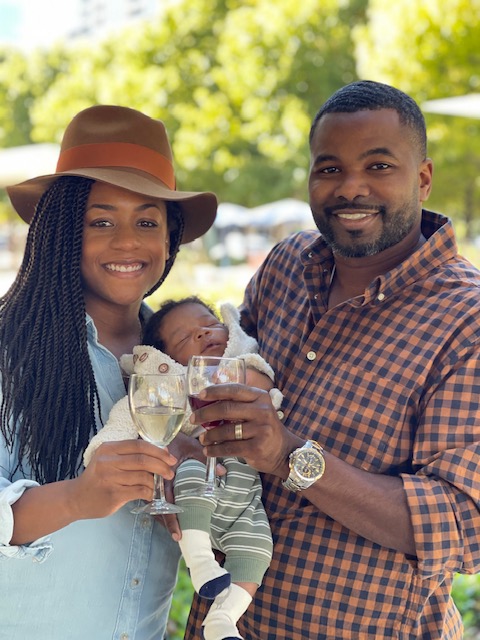Jasmine Young serves as the Founder & President of The Financial Literacy Institute, Inc. (TFLI). This non-profit organization, recognized under 501(c)(3), is dedicated to offering educational programs and resources aimed at enhancing financial literacy in underserved and underprivileged communities worldwide. With a background as a CPA, Jasmine is also the visionary behind Southern Heritage Financial Group, headquartered in Atlanta, GA. Through this venture, she crafts financial frameworks tailored to families, including small business owners, sole proprietors, and high-earning companies, facilitating their journey towards generational wealth. Jasmine’s overarching goal is to propagate financial literacy globally, advocating for one family at a time.

Tell us a little bit about your upbringing and what did you envision yourself being when you were younger?
I grew up in a two-parent household where my mom and dad worked very hard to make sure my brother and I didn’t have to grow up like they did being that my mom is one of eight and my dad is the baby boy of 17 – they didn’t have a lot growing up, but they set the example for my brother and I of what it means to be financially responsible adults. They surrounded themselves with individuals who had the financial education and success they desired to have, and they held each other accountable for the finances in the home allowing my brother and I to witness them budgeting their paychecks to pay the bills. Before I was told by one of my high school basketball teammates that “everyone isn’t fed with a silver spoon like you, Jasmine,” which made me want to be a CPA and be the resource that my peers and their families needed to become financially literate, I actually wanted to be a singer. However, I accepted the purpose and mission for my life to be a CPA with dreams of becoming the owner of a global chain of CPA firms.
What was it that made you decide to tackle financial literacy?
A high-school teammate told me that “everybody wasn’t fed with a silver spoon like me,” and it infuriated me because I didn’t feel that I was fed with a silver spoon. However, I realized that because my parents taught by example the importance of financial responsibility making sure my brother and I had everything we needed and some of what we wanted when they could afford it, it appeared to my peers that I was getting something that others weren’t or couldn’t. Instead of getting and staying mad, I got mad enough to do something about it and that was become a CPA and be the resource that my peers, their families, and my community needed.
When you started your brand, The Financial Literacy Program, what were some things you knew just had to be included with these programs?
Budgeting and credit! We live in a society where everyone’s “a boss” and “in their bag,” when in actuality, I’ve seen a lot of people’s who’s bags have holes in it or are actually empty contrary to what is portrayed on social media. So I knew that these topics were crucial to the economic liberation of our community.
While on this journey you decided to add a few team players. What was most important to you when selected your additional co-parts for The Financial Literacy Program?
What was most important for me when selecting co-parts for TFLI was finding individuals who looked like me, were equally if not more successful, and who had the same passion as I did for the liberation and education of our community.
Financial literacy is very important, so much so that people are now starting to work with youth groups. How do you feel about gaining knowledge on financial literacy at a young age?
I believe that the younger one is taught financial literacy, the easier it is to implement and exhibit as an adult. It’s easier to teach good money habits than it is to unlearn bad habits and replace them with good habits.
When you think about building your brand, what were some things you experience in the infancy stage and how did you navigate through them?
I experienced and still experience a lot of verbal support without action. Support is a verb. However, I know that the work that began in me will be completed. So, I just keep the faith, lowering my head only to pray, meditate, and give thanks. Self care and my spirituality plays a big role in how I’m able to continue on fighting for my community.
When taking on new clients have you found there to be a common trend on just what cause people to not start sooner?
Yes. The common trend is fear and shame. Our people are ashamed at the shape their financial lives are in, but because of the culture we live in where everyone looks the part, our people are also fearful of revealing that they don’t have it all together financially and are uneducated on how to get it together. The work I do is equally psychological as it is application of the knowledge I’ve learned through school, my certifications, and experience.
What do you hope people takeaway from your programs?
I hope people take away that financial literacy is not a point in time, it is a journey. It takes time to “get there,” and we should give ourselves grace for where we are financially because not only are we not afforded the same opportunities to acquire generational wealth like our counterparts, to this day, we are still fighting systemic oppression that continuously attempts to halt us from getting even remotely close to financial literacy and generational wealth. However, our economic freedom is directly related to political power and we must vote to gain the power we need to achieve this freedom that is long overdue.
What are some suggestions you have for people to deal with financial literacy even before they enroll in your programs?
The biggest obstacle I’ve seen in our community is we don’t talk about our struggles around money. So I recommend that every household has a household budget meeting. Set goals as a household that way there is no shame when certain things can’t be bought, or you can’t indulge in certain activities because the entire family is aware of what the financial goals are and can hold each other accountable to make sure the goals are met.
What’s next for you or your brand?
Continue working to build partnerships with brands and corporations that believe in the mission and desire to put action behind their words of support in getting our community the economic equity and freedom we deserve.
This year, The Financial Literacy Institute Inc. is taking a proactive approach by providing on-site mental health resources, voting informational resources in partnership with Fulton County, engaging panel discussions, opportunities to support black-owned vendors, and entertainment from local artists. The oldest living survivor, Mother Viola Fletcher, will be honored by The Financial Literacy Institute at the 3rd Annual Black Wall Street Black Business Expo Block Party on June 1st. So be sure to make plans to attend.






